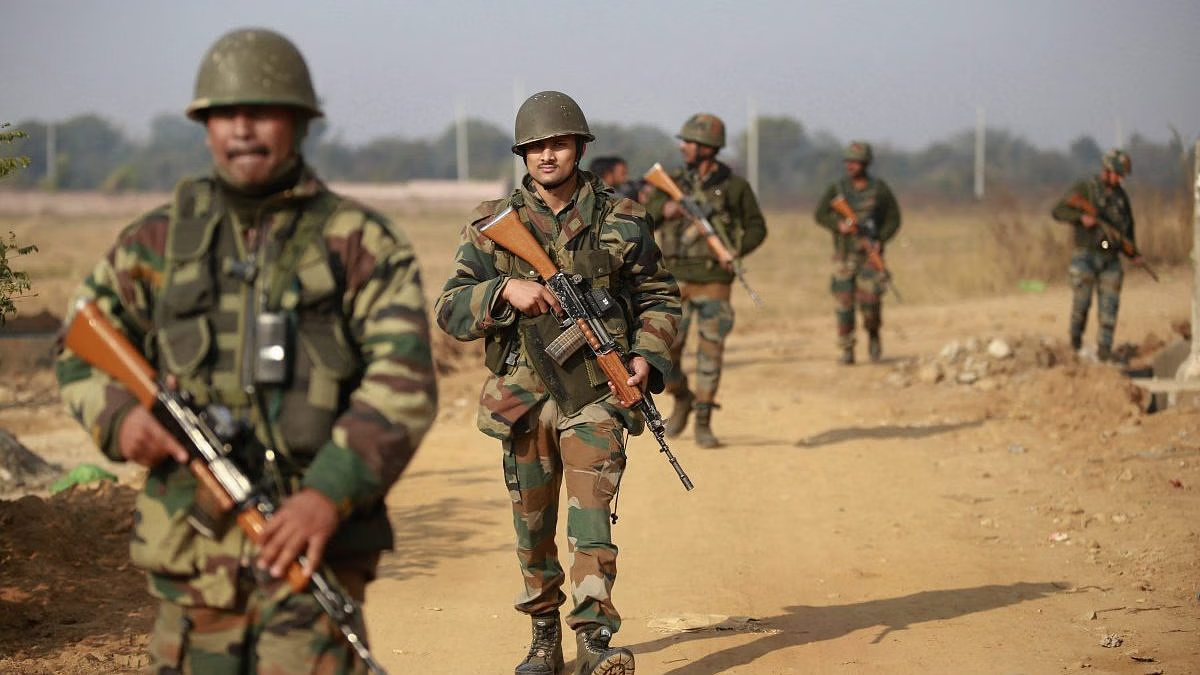IR & Security
International Relations and Security forms a considerable part of UPSC Civil Services syllabus. In prelims it covers mostly from 7-10 questions and in mains it covers 1/3rd of the GS paper 2 and 3.
India’s Bilateral Relations
- India Pakistan Relations
- India China Relations
- India Japan Relations
- India Russia Relations
- India Bhutan Relations
- India Nepal Relations
- India Bangladesh Relations
- India Srilanka Relations
- India Afghanistan Relations
- India Myanmar Relations
India’s Regional Relations
- India Central Asia Relations
- India Africa Relations
- India West Asia Relations
- India ASEAN Relations
- Indian Ocean and India
- India – A Soft Power
International Organizations
- Shanghai Cooperation Organisation (SCO)
- United Nations Organization (UNO)
- International Monetary Fund (IMF)
- World Bank (WB)
- New Development Bank (BRICS Bank)
- World Trade Organization (WTO)
- South Asian Association for Regional Cooperation (SAARC)
- Association of Southeast Asian Nations (ASEAN)
- OPEC, ADB, NAM, NATO
🌍 Core Pillars of India’s IR & Security Policy
| Pillar | Focus Areas |
| Diplomatic Engagement | Bilateral & multilateral relations, UN participation, global south leadership |
| Defense & Security | Military modernization, joint exercises, maritime security |
| Strategic Autonomy | Non-alignment, multi-alignment, strategic balancing |
| Neighborhood First | Strengthening ties with SAARC & BIMSTEC countries |
| Act East & Indo-Pacific | Deepening trade & security in ASEAN, Japan, Australia, QUAD |
🛡️ Key Strategic & Security Agencies in India
-
Ministry of External Affairs (MEA) – Oversees foreign relations
-
Ministry of Defence (MoD) – National defense and armed forces
-
National Security Council (NSC) – Strategic planning body
-
Research and Analysis Wing (RAW) – Foreign intelligence
-
Border Security Forces (BSF, ITBP, Assam Rifles, etc.) – Protect borders
🌐 Major Security Partnerships & Alliances
| Partner | Focus Areas |
| USA | Defense tech, QUAD, Indo-Pacific security |
| Russia | Military hardware, nuclear energy |
| France | Rafale jets, space & cyber cooperation |
| Japan | Maritime security, infrastructure |
| Israel | Counter-terrorism, surveillance, defense systems |
✅ 5 Key Points on India’s IR & Security
-
India’s foreign policy balances strategic autonomy with global partnerships to maintain sovereignty and influence.
-
India faces complex border security challenges—from China (LAC), Pakistan (LoC), and maritime zones in the Indian Ocean.
-
India is part of key strategic forums like QUAD, BRICS, SCO, and G20, enhancing its global diplomatic footprint.
-
National security is managed through a multi-layered approach involving military modernization, intelligence, and border forces.
-
Cybersecurity, counterterrorism, and space-based surveillance are emerging frontiers in India’s security doctrine.
-
India’s Maritime Strategy focuses on securing sea lanes in the Indian Ocean Region (IOR) through naval expansion and regional cooperation (e.g., SAGAR – Security and Growth for All in the Region).
-
Counterterrorism Diplomacy is a major IR priority—India actively collaborates with countries like USA, France, and Israel to counter global terrorism and push for UN reforms against state-sponsored terror.
-
Energy Security & Strategic Resources shape relations with West Asian countries, Central Asia, and Africa—India seeks to diversify oil imports and invest in critical minerals.
-
Soft Power Diplomacy is leveraged through Yoga, Bollywood, education, humanitarian aid, and a growing network of Indian cultural centers (ICCR) worldwide.
-
Diaspora Engagement plays a key role in foreign policy; India maintains strong connections with its global Indian community to foster investments, lobbying, and cultural ties.
-
Border Management Reforms are being implemented with the use of technology like drones, smart fencing (CIBMS), and improved road infrastructure for faster troop mobilization.
-
Nuclear Doctrine & Deterrence: India follows a “No First Use” (NFU) policy and maintains a credible minimum deterrence, ensuring regional stability in South Asia.
-
Multilateral Leadership: India actively participates in and advocates for reforms in UN Security Council, WTO, IMF, and other global institutions to reflect modern geopolitical realities.
-
Space & Cyber Security have become key strategic domains. With the launch of India’s ASAT missile (Mission Shakti) and the creation of the Defence Cyber Agency, India is preparing for non-traditional warfare.
-
Climate Diplomacy & Global Health Security: India leads initiatives like ISA (International Solar Alliance) and contributed globally during COVID-19 through vaccine diplomacy (Vaccine Maitri).
For more updates, explore the Geography . Feel free to share your thoughts and comments.
If you’re passionate about building a successful blogging website, check out this helpful guide at Coding Tag – How to Start a Successful Blog. It offers practical steps and expert tips to kickstart your blogging journey!


5 comments
excellent initiative sir
provide prilims practice papers also…
doing excellent work….really helpful..
sir plz provide notes for other international organisations too……u r doing a wonderful work
Please provide notes on various national and international reports and their releasing organisation
also provide notes on other international organisations e.g. WEF, ILO, ICJ etc
Thank you for wonderful site